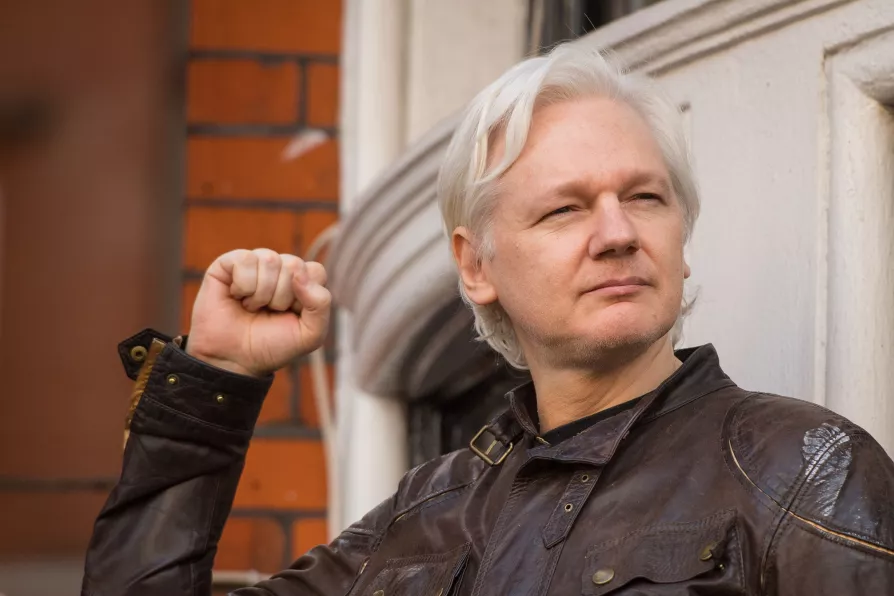
 Julian Assange, May 19, 2017
Julian Assange, May 19, 2017
JUDGES must decide tomorrow if Julian Assange would enjoy the same rights as a US citizen if tried in the US.
It’s an ironic question. The persecution of the WikiLeaks founder has rested from the beginning on US exceptionalism — that rules do not apply to the United States as they apply to other countries — and extraterritoriality, that US law somehow applies to non-US citizens’ conduct thousands of miles away from the US.
Both apply too to the crimes Assange is being tormented for exposing.
The US can murder citizens of other countries by the hundred in drone strikes, without due process or even much in the way of diplomatic upset.
It can launch illegal war after illegal war, its soldiers can laugh as they gun down unarmed civilians from helicopters, it can loftily decline to recognise the authority of bodies like the International Criminal Court (while publicly welcoming indictments of other countries’ officials before that court): but still it claims to police a “rules-based international order” under supposed threat from its rivals.
This is about journalism: as New York Times executive editor Dean Baquet has stated, it sets a frightening precedent when a journalist can be accused of espionage for publishing classified material that was handed to him. Assange did not leak the information: he was never in the US government’s employ. The Assange case warns reporters everywhere that publicising the crimes of the powerful could result in years behind bars.
But it is also about empire. It is about proving that the reach of Washington is global, that you don’t have to be in the US or from the US for it to punish you.
British politicians have cringed before US demands because of our country’s vassal status in that empire. It has often been observed that the US-Britain extradition treaty is unequal, with the bar higher for US citizens to be extradited here than vice versa. But the Assange case has taken that to extremes: evidence of US wrongdoing can pile up without it making any difference to the extradition case.
As campaigner John Rees has written, “In the course of the court hearings it has become public knowledge that a lead witness for the prosecution lied, that Assange and his lawyers were spied on by the CIA, and that the CIA discussed at the highest levels plans to abduct or assassinate Assange. In any normal trial any one of these, let alone all of them, would have had the case dismissed.”
But Britain can’t dismiss the case. Tony Blair assured US president George W Bush when the invasion of Iraq was first mooted that Britain would be “with you, whatever”: a decision he stuck to in the face of overwhelming opposition from the British public.
He was with Bush in what was termed the “project for a new American century.” The project that dictated the wars now dictates the punishment Assange faces for showing the world, in intimate detail, how horrific they were, from the “collateral murder” video to the logs recording the hundreds of civilians killed by our bombs in Afghanistan.
Now the US and Britain want to militarise for still greater wars, in “multiple theatres including Russia, China, Iran and North Korea,” according to Defence Secretary Grant Shapps. To do it they must maintain the myth that the West are the good guys.
Which means ensuring there are no more embarrassing exposés of the bloody lawlessness of the “rules-based international order” they claim to uphold. Assange, by this logic, must be punished.
For us, that makes his freedom all the more important. This is about justice for Julian Assange, and it is about defending the freedom of the press, but more crucially still it is about understanding the horrific reality of war, so we can stop the wars of the future.














